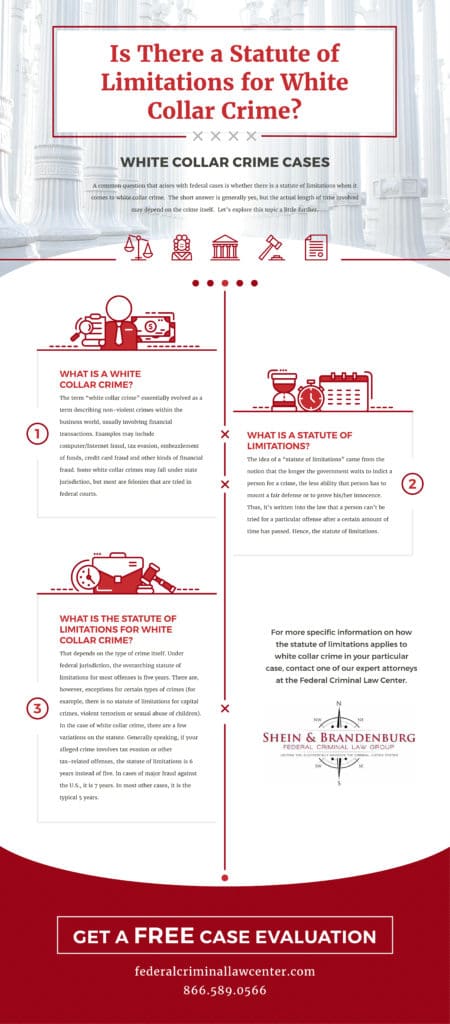A common question that arises with federal cases is whether there is a statute of limitations when it comes to white collar crime. The short answer is generally yes, but the actual length of time involved may depend on the crime itself. Let’s explore this topic a little further.
WHAT IS A WHITE COLLAR CRIME?
The term “white collar crime” essentially evolved as a term describing non-violent crimes within the business world, usually involving financial transactions. Examples may include computer/Internet fraud, tax evasion, embezzlement of funds, credit card fraud and other kinds of financial fraud. Some white collar crimes may fall under state jurisdiction, but most are felonies that are tried in federal courts.
WHAT IS A STATUTE OF LIMITATIONS?
The idea of a “statute of limitations” came from the notion that the longer the government waits to indict a person for a crime, the less ability that person has to mount a fair defense or to prove his/her innocence. Thus, it’s written into the law that a person can’t be tried for a particular offense after a certain amount of time has passed. Hence, the statute of limitations.
WHAT IS THE STATUTE OF LIMITATIONS FOR WHITE COLLAR CRIME?
That depends on the type of crime itself. Under federal jurisdiction, the overarching statute of limitations for most offenses is five years. There are, however, exceptions for certain types of crimes (for example, there is no statute of limitations for capital crimes, violent terrorism or sexual abuse of children). In the case of white collar crime, there are a few variations on the statute. Generally speaking, if your alleged crime involves tax evasion or other tax-related offenses, the statute of limitations is 6 years instead of five. In cases of major fraud against the U.S., it is 7 years. In most other cases, it is the typical 5 years.
For more specific information on how the statute of limitations applies to white collar crime in your particular case, contact one of our expert attorneys at the Federal Criminal Law Center.


